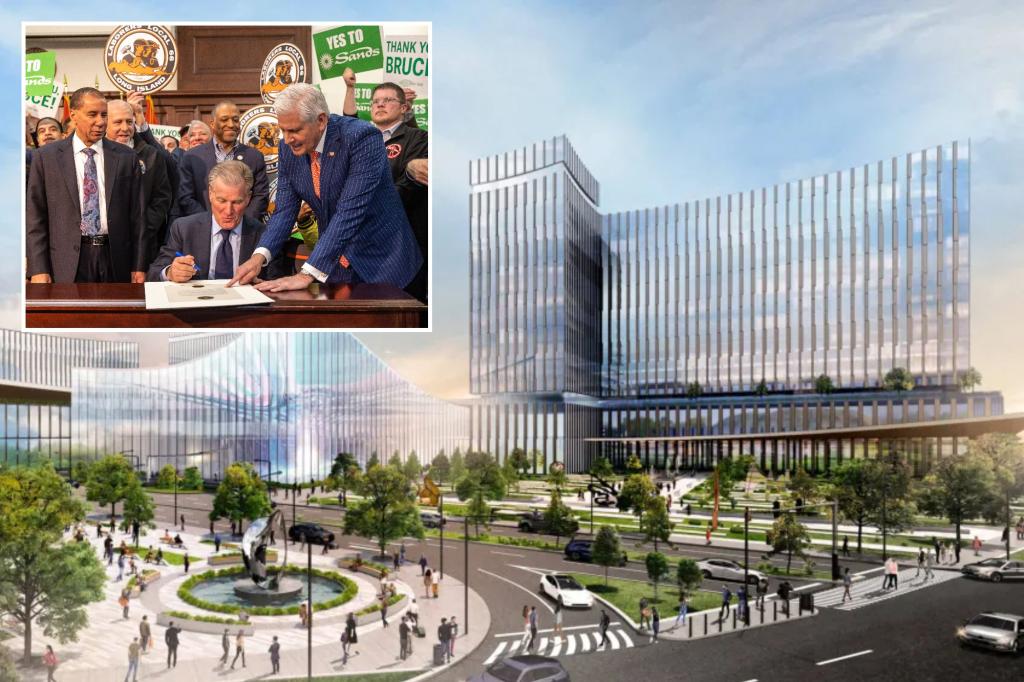Las Vegas Sands Abandons $4 Billion Nassau Casino Project in Surprise Move
In a stunning reversal, Las Vegas Sands has withdrawn its $4 billion proposal to develop a casino and entertainment complex at Nassau Coliseum in New York. The gaming giant announced its decision on Wednesday, citing unresolved “challenges” as the primary reason. The project, which promised thousands of jobs and economic revitalization, leaves Nassau County’s development future uncertain.
Project Collapse Shakes Local Economic Hopes
The ambitious plan would have transformed the 72-acre Nassau Veterans Memorial Coliseum site into a luxury integrated resort featuring:
- A 500-room hotel tower with panoramic views
- 125,000 square feet of gaming space
- World-class entertainment venues
- 40+ dining and retail outlets
- Convention facilities for 2,500+ attendees
Economists projected the development could generate $5.2 billion in economic activity over a decade. “This was more than a casino—it was poised to become an economic engine for the entire region,” said Dr. Miriam Kowalski, urban development professor at Hofstra University. “The withdrawal creates a significant void in Long Island’s post-pandemic recovery plans.”
Behind Sands’ Sudden Exit
While company officials provided limited details, insider sources reveal three key factors influenced the decision:
- Licensing delays: New York’s lengthy approval process created uncertainty
- Community opposition: Growing “Not in My Backyard” protests gained momentum
- Market saturation concerns: With three downstate licenses available, competition appeared fierce
“After careful consideration, we’ve determined the current path forward doesn’t align with our strategic objectives,” stated Sands spokesperson Elena Rodriguez. The company will reportedly focus on expanding its Asian markets and digital gaming initiatives instead.
Mixed Reactions From Stakeholders
Local officials expressed disappointment at the lost opportunity. Nassau County Executive Bruce Blakeman noted, “We’re talking about 5,000 construction jobs and 3,000 permanent positions that won’t materialize.” The project had promised $25 million annually in local tax revenue.
However, anti-casino groups celebrated the news. “This proves community voices matter,” said Sarah Chen of Preserve Nassau. “We maintained that a casino would increase traffic, crime, and gambling addiction—now we can pursue better development options.”
What’s Next for the Nassau Coliseum Site?
The future of the aging coliseum complex remains uncertain. Since the New York Islanders’ 2021 departure to UBS Arena, the venue has hosted only sporadic events. Possible scenarios include:
- A scaled-down mixed-use development without gaming
- Renewed focus on sports and entertainment venues
- Public-private partnerships for affordable housing
Real estate analysts suggest the site could still attract developers. “The location offers unparalleled access to transportation and a wealthy consumer base,” noted commercial broker David Epstein. “But any new proposal will need stronger community support.”
Broader Implications for New York’s Gaming Expansion
Sands’ withdrawal comes as New York considers awarding three downstate casino licenses. Competitors like Wynn Resorts and MGM Resorts remain in contention, but industry experts warn the Nassau exit may signal broader challenges:
- Increased scrutiny of gaming-related development
- Potential reevaluation of economic projections
- Possible delays in the state’s licensing timeline
Gaming Commission data shows New York’s existing casinos generated $2.3 billion in revenue last year, but market saturation remains a concern. “Operators are realizing these projects require more than slot machines to succeed,” explained gaming analyst Mark Henderson. “The experiential component is crucial.”
Looking Ahead: Economic Recovery Alternatives
With the Sands project abandoned, local leaders must explore other revitalization strategies. Potential alternatives include:
- Tech hub development leveraging nearby universities
- Green energy initiatives on the underutilized property
- Public infrastructure improvements to attract diverse businesses
As the dust settles, one thing is clear: Nassau County’s path to economic revitalization just became more complicated. Residents and officials alike await concrete plans for the coliseum site’s future—preferably ones that unite rather than divide the community.
What should replace the failed casino project? Share your ideas with local representatives and join the conversation about Nassau’s next chapter.
See more Business Focus Insider Team

